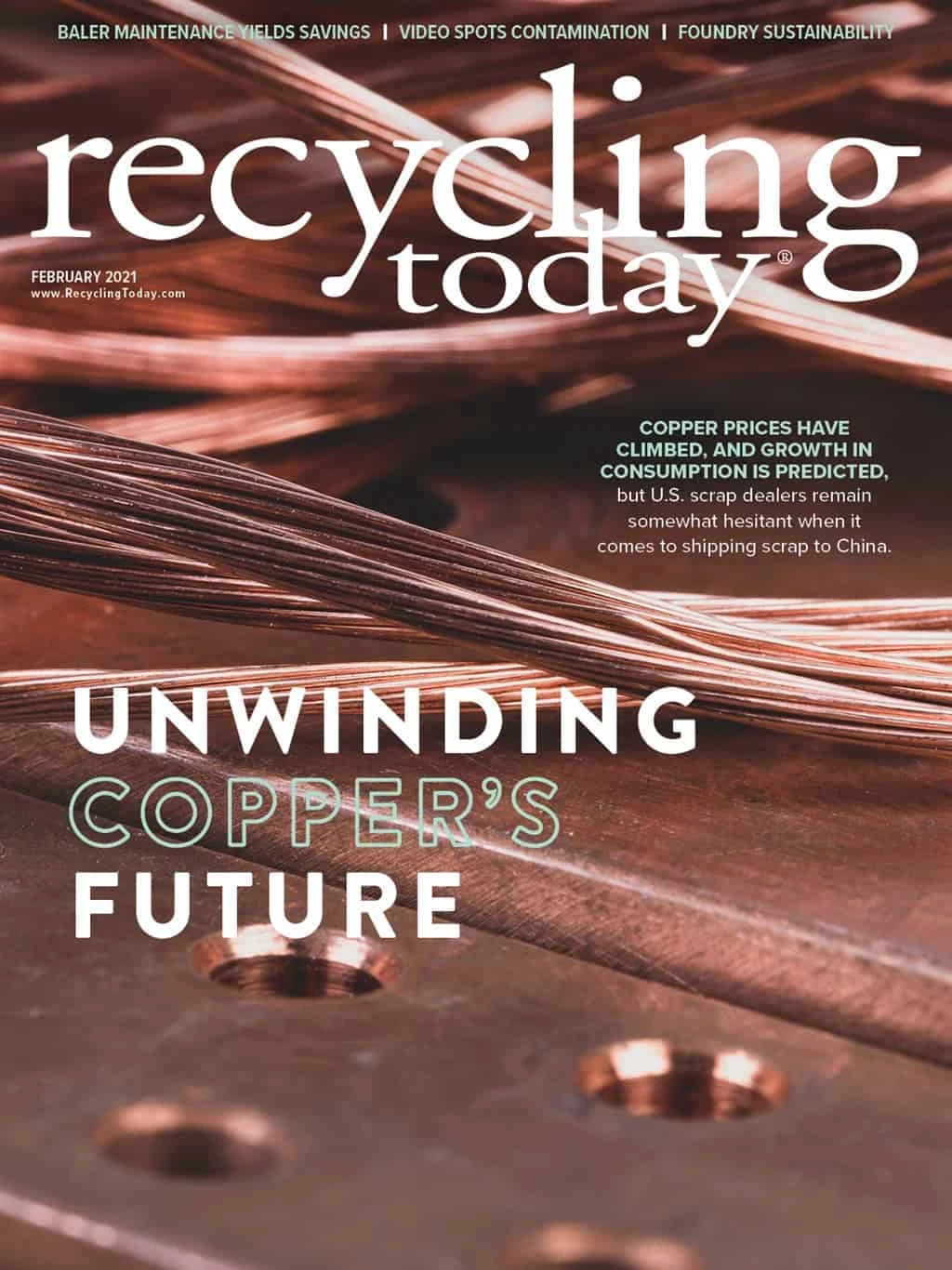
Jacob Bronstein
CEO of Merrillville Metal Recycling
From a young age, Jacob Bronstein considered pursuing a career in the scrap industry. When he was 13 years old, he says his parents did business with General Iron and took him to see the yard in Chicago.
“That gave me my first exposure to the business,” he says. “There were so many moving parts [and] awesome equipment.
He adds, “It was implanted in my mind that this could be a possible career path.”
Then, about three years ago, one of his neighbors, Bobby Katz, helped Bronstein get his foot in the door in an operations role at Maine Scrap Metal in Illinois. Bronstein says his job with Maine Scrap Metal was similar to an apprenticeship and helped him to develop a stronger work ethic.
In 2019, Bronstein set out to launch Merrillville Metal Recycling in Merrillville, Indiana, a full-service scrap metal company dedicated to servicing commercial and industrial scrap metal generators. He says his company opened for business in 2020 at the height of the pandemic.
“We were supposed to have a ribbon-cutting ceremony, but that was canceled,” he says. “We opened when economic activity came to a standstill.”
“A lot of mentors and friends have said, ‘If you can make it through this, you’ll make it through other ebbs and flows in the scrap business.’”
Bronstein’s initial reaction to opening during a pandemic was fear, but he adds that the experience has helped him to develop character. “A lot of mentors and friends have said, ‘If you can make it through this, you’ll make it through other ebbs and flows in the scrap business.’”
Recycling Today (RT): What were some of the challenges with starting Merrillville Metal Recycling, and how did you overcome them?
Jacob Bronstein (JB): Where do I start? Everything from raising capital to zoning to construction with regard to cost overruns and change orders and, of course, opening up at the height of the coronavirus [pandemic was a challenge].
I wrote a business plan [and] secured my first capital commitment in April of 2019, closed on the site and hired an architect and civil engineer due to the fact that the property had to be rezoned from light industrial to a conditional use as a recycling station. There were enormous risks and upfront costs due to the fact of being unsure on how the planning commission or zoning appeals board would rule in our case.
Getting the property rezoned during 2019 consumed a lot of time. We would get back from the city with regard to our submittals and would further have to make iterations to appease the city, which was costly.
RT: Could you share any stories from your first year in business?
JB: When we first opened our doors during the height of the pandemic, I was only going to the bank several times a week for cash. As we continued to grow, I was making more frequent runs to the bank. ... I became very familiar with all the bank tellers at my local branch. They all know me on a first-name basis—I would ask about their dogs or spouses. The frequency of bank runs was a good barometer for growth.
RT: Where do you see the scrap recycling industry heading in the near-term future?
JB: I think the future of the industry is that the steel manufacturing process is going to become more vertically integrated as manufacturers seek more scrap feedstock as technology improves and greater margins are realized as a result. ... I believe the entire commodity value chain will shift toward being more heavily concentrated on securing scrap supply.

Explore the February 2021 Issue
Check out more from this issue and find your next story to read.
Latest from Recycling Today
- Orion ramping up Rocky Mountain Steel rail line
- Proposed bill would provide ‘regulatory clarity’ for chemical recycling
- Alberta Ag-Plastic pilot program continues, expands with renewed funding
- ReMA urges open intra-North American scrap trade
- Axium awarded by regional organization
- Update: China to introduce steel export quotas
- Thyssenkrupp idles capacity in Europe
- Phoenix Technologies closes Ohio rPET facility





